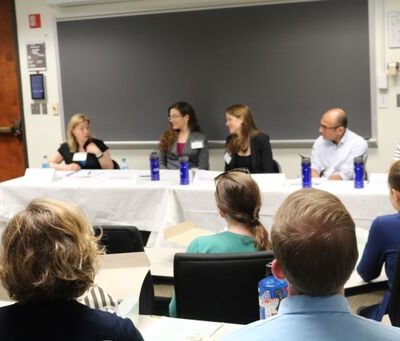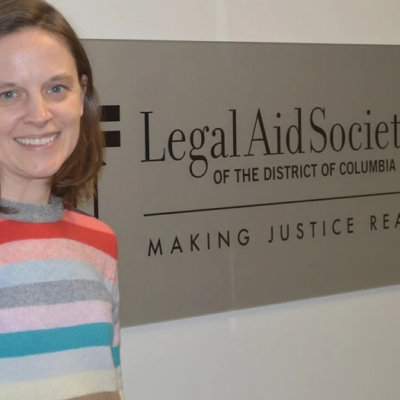On Wednesday, January 29, we'll be hosting Pro Bono Without Borders, a panel discussion about global pro bono. To preview the event, Renuka Nagaraj interviewed Jessica Ryckman, Special Counsel & Program Manager at Lawyers Without Borders, about doing pro bono work with an international dimension. Here's what Jessica had to say: How did LWOB start, and what was the inspiration for it? Christina Storm, the current director, started LWOB about 15 years ago. At the time, she wanted to volunteer for an international program and she could not find any outlets to do this. This inspired her to start a quality program for lawyers and judges who wanted to do pro bono work abroad. What is the mission of LWOB? LWOB focuses on strengthening the rule of law and increasing access to justice around the world and providing pro bono lawyers the opportunity to work on these projects. How did you personally get involved with LWOB? I was working at a law firm and wanted to work on an international pro bono project. I found a project in Liberia that provided training for attorneys and judges on human trafficking laws. After working on this project in Liberia for about 3 weeks, I was hooked and wanted to do this kind of work full-time. I asked Christina Storm if there were any opportunities and fortuitously, LWOB was looking for someone in DC at that time. What do you do at LWOB? I am a Project Manager and Special Counsel and manage some of LWOB’s Africa programs. For example, I have been working, in conjunction with the US Department of State, on a Liberian human trafficking program, which produces in-person trainings and educational materials. I also work on LWOB’s Kenya initiative, which is creating an independent, Kenyan national-led program and also produces annual trainings there. What are the different kinds of projects that LWOB offers? There is a wide range of programs. LWOB does a lot of trainings for judges, lawyers and law enforcement abroad. We also send participants to observe important court proceedings as a neutral party to report on procedure and fairness at the proceedings. For example, LWOB volunteers observed the Caprivi Strip treason trial in Namibia, the longest and largest trial in this country’s history. Furthermore, LWOB creates graphic novels for countries with low literacy rates, on important topics—such as gender rights, human trafficking, inheritance and succession, and HIV/AIDS. Along the same lines, LWOB makes educational coloring books for children, such as one specific to children in Liberia on the dangers of trafficking. Does LWOB work with attorneys of all experience levels? Yes, LWOB takes volunteers of many experience levels. It works with college students, law students, attorneys, and judges. What advice do you have for those who are thinking of doing global volunteering? Just jump right in! If you are interested in pro bono work abroad, contact organizations that do this work and talk to people who have done it before. Don’t be afraid to reach out to people. Sometimes, people think that they can’t make the money or time commitment for a pro bono project. However, it’s not as time-consuming or complicated as you may think. So take the next step and start researching how you can start volunteering. What do volunteers like most about working with LWOB? A lot of people say that volunteering for LWOB was a life-changing event. Volunteers also most frequently comment that the LWOB programs are really well-organized and substantive. They had the chance to really get down to the nitty-gritty when working abroad and to work and build relationships with local lawyers and judges. Are you especially proud of any particular LWOB projects? LWOB has been training on a human trafficking in Liberia since 2007. Liberians have had a human trafficking law in place since 2005, and the first prosecution under the law was not until 2013. This case involved a prosecutor and judge that LWOB trained. After talking to them, they credit the training with helping them understand the law and how to hear and prosecute a trafficking case. That is something I’m so proud of, because it shows the impact you can have in other countries. To learn more, register to attend Pro Bono Without Borders – this Wednesday, January 29.








